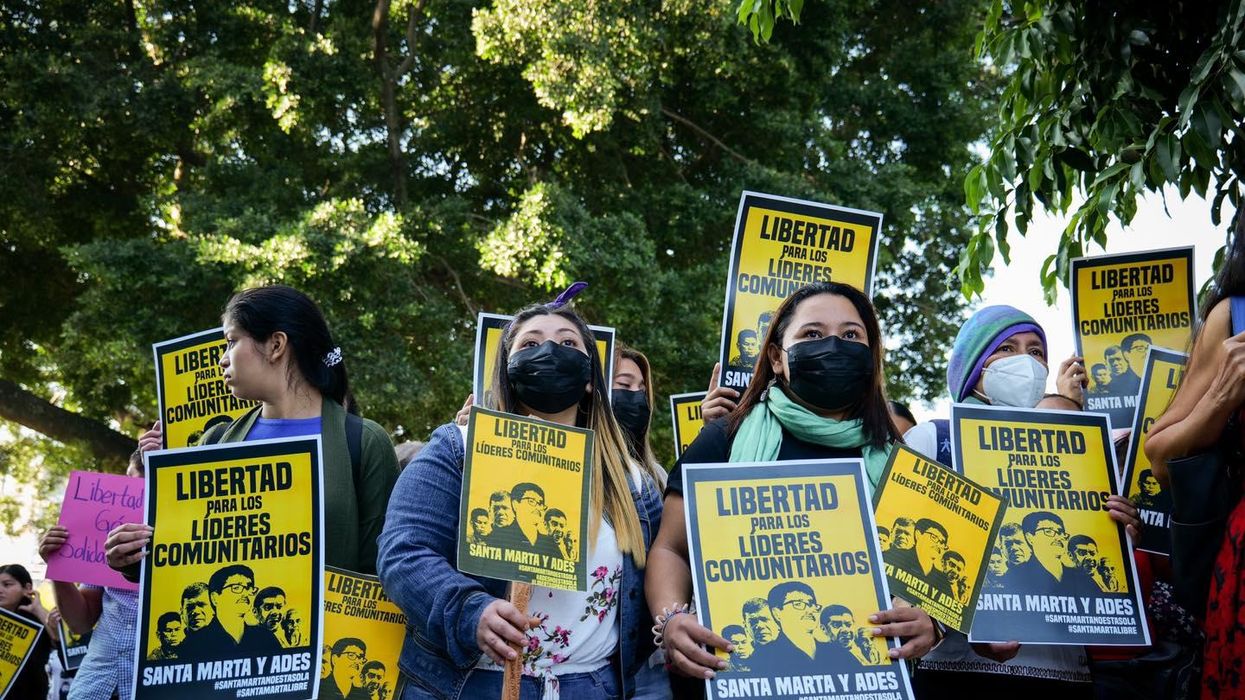'A Death Sentence': Legislature Overturns El Salvador's Metal Mining Ban
One group called it "the biggest attack on water, health, and life in El Salvador," highlighting "opposition from churches, universities, social organizations, and the majority of the population."
In a win for Salvadoran President Nayib Bukele, who has dubbed himself "the world's coolest dictator," the Legislative Assembly of El Salvador on Monday overturned the Central American country's 2017 ban on metal mining.
Bukele has fought to reverse the historic ban since taking office in 2019. Despite a prohibition in the Salvadoran Constitution, he ran for and won a second term in February, after his Nueva Ideas (New Ideas) party purged the judiciary.
Reporting on Monday's mining reversal, the Financial Timesnoted that "Bukele's party and its allies hold 57 of 60 seats in the legislature, and all 57 voted to overturn the ban while giving the Salvadoran government sole authority over mining activities."
As the British newspaper detailed:
He has claimed that El Salvador sits on gold reserves potentially worth $3 trillion, citing an undisclosed study, although that has been treated with skepticism by experts.
There has been limited exploration in El Salvador. El Dorado, the most advanced of more than two dozen exploration projects prior to the ban, was once estimated to hold 1.4 million ounces of gold, which would be worth roughly $3.6 billion today, without considering production expenses.
El Salvador's gold belt runs across its northern provinces and the watershed of the Lempa River, which is the small and densely populated country's main source of water.
In a statement earlier this month, the Washington, D.C.-based Institute for Policy Studies (IPS) warned that "El Salvador's 2017 prohibition against metallic mining is a widely popular measure and overturning it would be a death sentence for the small and densely populated country with its scarce water sources, many of which are already contaminated."
"The historic ban, passed in a unanimous 70-0 vote by El Salvador's Legislative Assembly in 2017, was the result of a decadelong campaign to value life over transnational mining corporations' pursuit of profits," IPS explained. "The campaign was ultimately supported by a wide coalition of civil society organizations, educational institutions, some business sectors, legislators and ministers from across the political spectrum, as well as two archbishops. They were all persuaded by substantial evidence of gold mining's destructive effects, and the deleterious impacts of cyanide used in gold mining."
"The struggle also cost the lives of several beloved water defender activists who stood up to the mining companies in Cabañas: Marcelo Rivera, Ramiro Rivera, student Juan Francisco Durán Ayala, and Dora Alicia Recinos Sorto, who was eight months pregnant when murdered, and whose 2-year-old child witnessed and was wounded in the attack," the group added.
The IPS statement came in response to a November 26 ruling that ordered a retrial for the Economic and Social Development Association of Santa Marta (ADES) "Santa Marta Five" water defenders—Miguel Ángel Gámez, Alejandro Laínez García, Pedro Antonio Rivas Laínez, Teodoro Antonio Pacheco, and Saúl Agustín Rivas Ortega—a development the group denounced.
ADES forcefully condemned the mining ban reversal on social media Monday, calling it "the biggest attack on water, health, and life in El Salvador," and pointing to "opposition from churches, universities, social organizations, and the majority of the population."
The Salvadoran group also shared images of opponents who gathered outside the Legislative Assembly on Monday.
Luis Gonzalez, one of the environmentalists outside the building,
toldReuters, "We oppose metals mining because it has been technically and scientifically proven that mining is not viable in the country."


